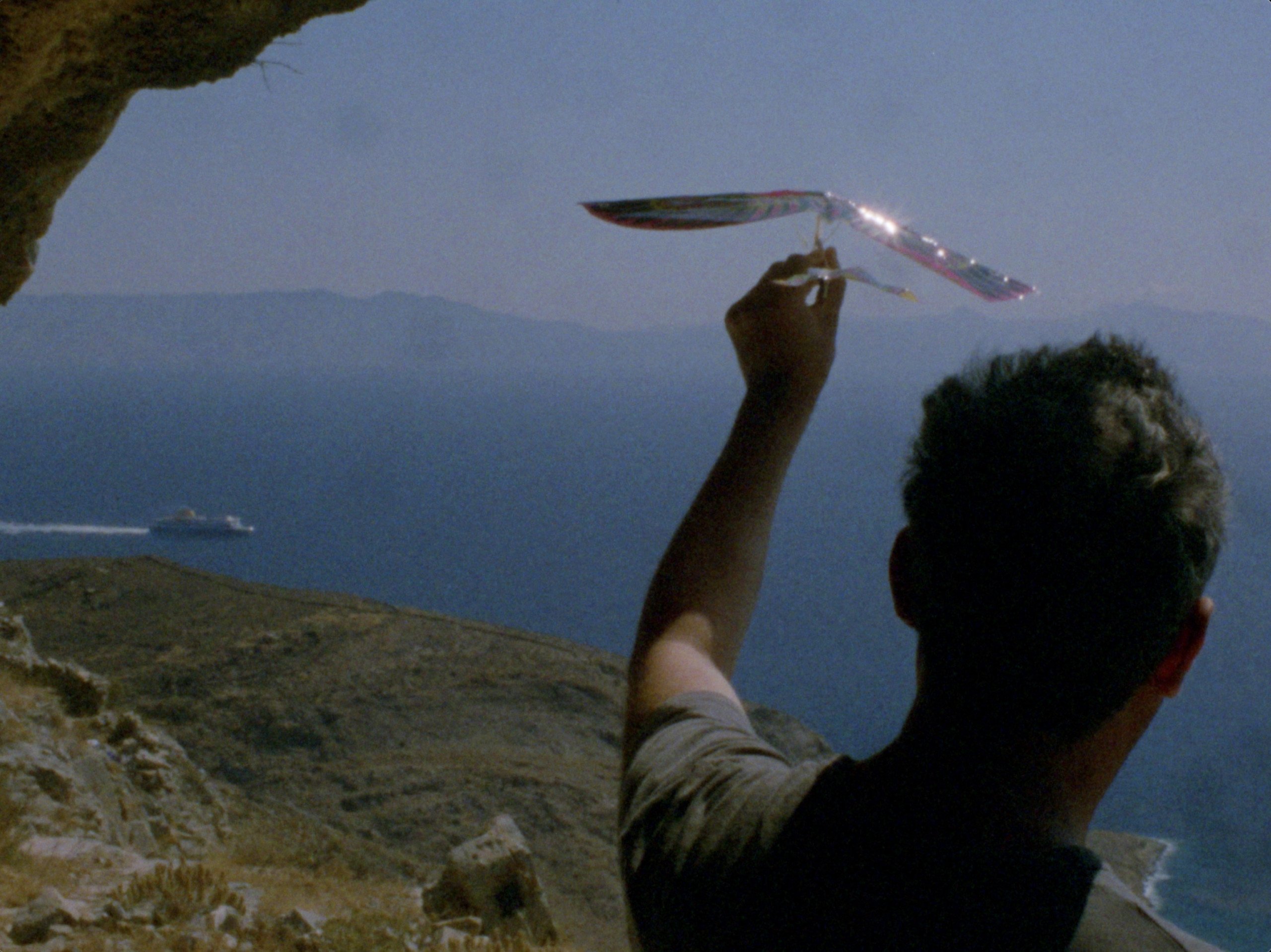To lose oneself in the act of walking across landscapes; sojourns adrift in a transnational current. To be lost as an act of disorientation from the paralysis of history; from the charting of territories from colonial maps; from nation-forming borders; the militarization of sovereignty; the extraction of resources; and the speculation of land. The gait of the embodied camera wanders discontinuously through time, shifting across an archive of seemingly disconnected moving images. The slow moving gestures of Noh, the excavation of phosphate on the Pacific island of Nauru, the moss that grows on Snake Rock, the water path of San Agustin Etla, the resonances of Reza Abdoh’s theatre still present. The Most Dangerous Question is a film that refuses to weave its fragments as locatable and instead reveals presences across decades. It is an ode to the ecstatic, intimate states of being.

The Most Dangerous Question, The Most Dangerous Question
John Bruce
90’
- Status
- Director
Director’s statement
The Most Dangerous Question began for me in 1995. I was still alive despite a decade of believing otherwise. I had experienced the advent of HIV/AIDS in NYC having wandered there a decade earlier. Comrades of the resistance disappeared, lessons gleaned through a glimpse toward extinction faded like a problem solved and tidily put away. Through the haze of the fin de siècle, we acted out a resistance to the violence of distances – the many ways we are separated from ourselves, our bodies, each other, ancestors and the land. We recorded a series of site-specific happenings on stages and streets through the performance of ethnography, in part inspired by theater artist Reza Abdoh who left behind a body of work that served as an unvarnished co-witness to my own unblinking experience. Our collective fabulation included tales of Nauru, a Pacific island suffering a tragic, almost comic unfolding of environmental and cultural devastation. Walking with others and the land, listening in and across false separations of time and space are opportunities for these rituals to proliferate, expand, and ravel.
Technical sheet
- Production:Miko Revereza (miko.revereza@gmail.com)
Train Tracks (John Bruce : mrjohnbruce@gmail.com) - Budget:180 792 €
- Acquired Budge:70 552 €
- Funds:The New School Provost Office Research Award - The School of Design Strategies Research Award - Parsons Faculty Research Fund
- Shooting countries:United States, Japan, Greece, Italy, Colombia